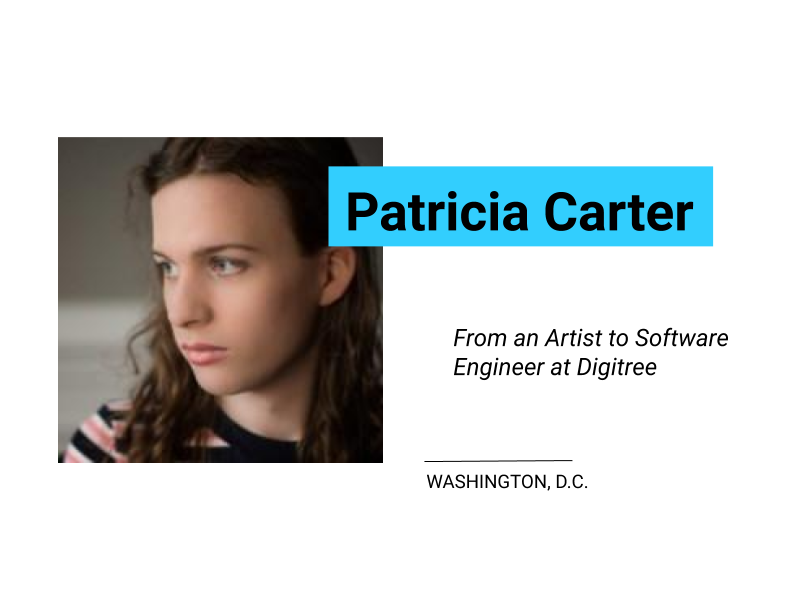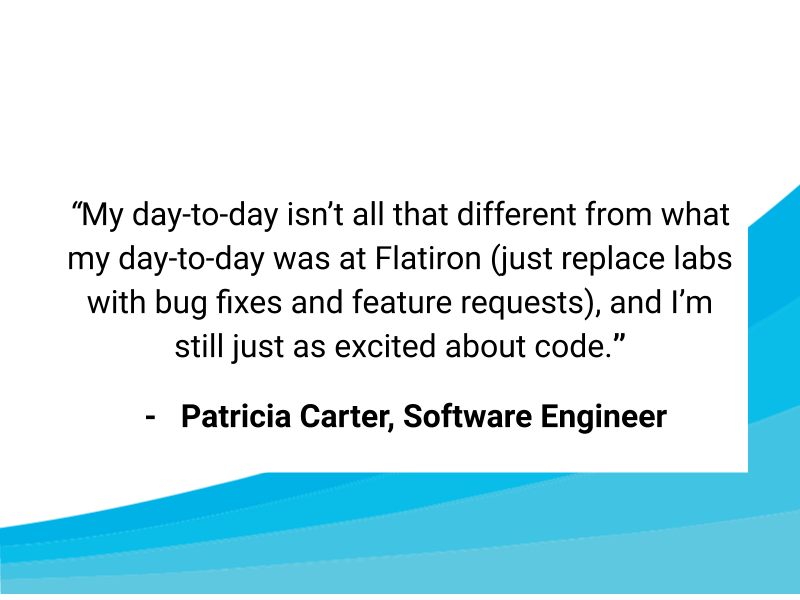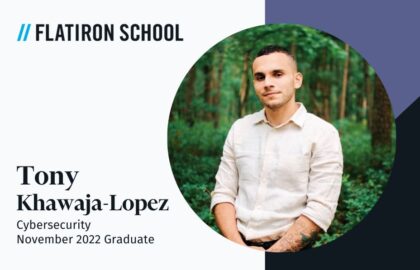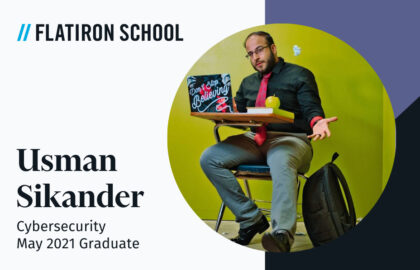
“Treat every mistake as a happy accident. Embrace curiosity and fall in love with the subject matter.”
Meet Flatiron School student Patricia Carter! Patricia dabbled in a few careers including artist’s assistant, sales, retail clerk and English teacher. It was a close friend and software engineer where she ultimately found inspiration to make the leap to a career change. She loved how coding allowed her to express her creativity through a new lens. Read how Patricia transferred her creativity from the visual arts to programming and became a “code artist” with a family media company.
You entered Flatiron School with a background in history and studio art. How was Flatiron School different for you than those other educational experiences? What was the biggest surprise for you overall about the experience?
I would say that Flatiron School was a lot more hands-on than my collegiate experience. Day-to-day life at Flatiron School , from the tools we used like Slack and Git, to the problem solving conducted in labs, very closely resembles a day in the office at my new job. That made the transition from bootcamp to work very easy. I think the biggest surprise for me was how much independence we were given in the learning process. I really appreciated that.
What got you into coding?
I have a lot of friends in the software industry that got me interested in it as a career path. Once I did the boot camp prep course I found out that I really liked it. I like structured learning and Bootcamp Prep took things step by step. In retrospect, it makes sense that I got back into technology because when I was a kid I was really interested in STEM. Ultimately, getting into coding felt like coming home.
How has your creative eye you’ve honed through studio art contributed to your coding experience? Does that creativity translate to the projects you built in your curriculum?
I'd like to think that my art experience has given me an eye for design when it comes to front end styling with CSS. On a deeper level, I think the process of producing a work of art (from concept to sketch to finished product) was a process I was able to translate into working on apps (which undergo a similar process of refinement). One thing I learned through art was how to get into a creative 'zone' with music and relaxation, and I think that zone is still where I do my best work.

Tell us about your approach to networking. What was your experience and how did you leverage networking skills to enhance your interview prospects?
I was lucky enough that a friend of mine in recruiting offered to take a look at my resume. Between his help and help from career services and the Learn career track, I learned a lot about how to present myself and how to go about my search. I made sure to send detailed, enthusiastic emails thanking my interviewers for their time and highlighting what I liked about their companies.
How did networking ultimately convert into a job offer?
I was so grateful to be connected with an opportunity at Digitree. I followed up at every stage of the process and made sure the company knew that I loved their product and that my interests and goals fit in with the team's.
What are you working on currently and do you feel prepared to execute your job details?
I’m working as a full stack engineer at Digitree and I’ve been solving Git issues and building features since day one. My day-to-day isn’t all that different from my day-to-day was at Flatiron School (just replace labs with bug fixes and feature requests), and I’m still just as excited about code.
What was the most rewarding part of Flatiron School?
How much I grew over 3 months, and the extreme amount that I learned that otherwise would have taken me years to learn.
What advice would you give to someone at the beginning of their Flatiron School journey?
Don't be afraid to tinker and play with code and with your machine. Treat every mistake as a happy accident. Embrace curiosity and fall in love with the subject matter. Coding opens up a new world of creation, construction, and discovery where the only limitation is your imagination. Those of us in 'Mod 6' are learning right beside you. To quote Bill Waterson: "It’s a magical world, Hobbes ol' buddy… let's go exploring!"
Patricia's career coach Mo Chanmugham on what made her job search so successful:
"Patti was a rockstar student! She not only had a great understanding of the programming languages she learned but she also had that wonderful combination of being professional, mature, and easy to work with. It's no surprise her employer found her to be an easy hiring decision."




